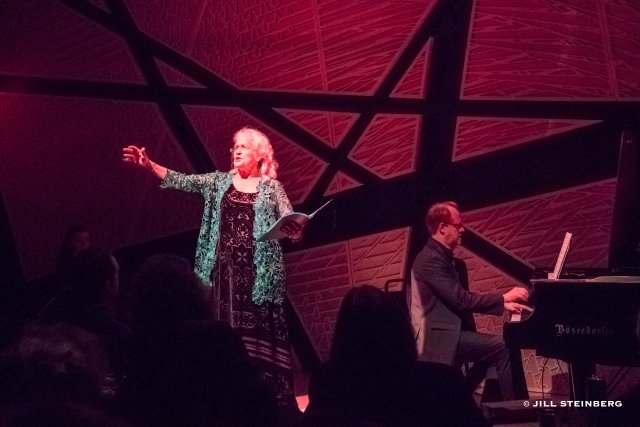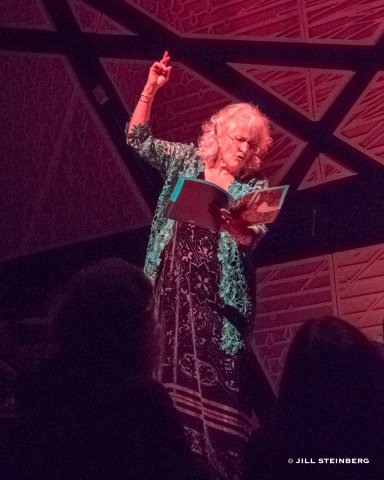Lucy Shelton at National Sawdust
Legendary Singer of Contemporary Song Lofts Stravinsky and Rochberg
By: Susan Hall - Dec 16, 2019
December 15, 2019
Lucy Shelton, the legendary soprano, did not let us forget. If we don't live in the action and passions of our musical times, we risk not having lived at all. Igor Stravinsky vocalise, with no words and only sung notes, introduced the evening.
Shelton followed with a John Cage song in which the piano keyboard is covered. It becomes a drum which the pianist Robert Fleitz beat to create accompaniment. Shelton would ask if any of us had heard George Rochberg, and not a hand was raised. The pianist bent over the sounding board and plucked. Key notes were muted. You can do anything with song, she seemed to say. Lucy Shelton spreads her voice and does everything.
Shelton has a particularly lovely voice, which sounds clear as bells. In fact, she signaled each course of the song tasting menu she presented with the chime of a bell. She did forget to ring once. It is the clarity of a bell in her voice which delivers nuance and a magical transmission of feeling. She can whisper and she can screech, always carrying us with her.
From Stravinsky's last song, which is hardly Strauss', we hear Edmund Lear's amusing lyrics for the Owl and the Pussycat. He wrote the song for his wife just before he died. We are let in on the painful life of a Chinese laundry man who came to the US to make America clean again. The emotional context of the evening is as wide ranging as Shelton's voice.
Four pianists collaborated. Jeremy Gill, known to Boston Symphony audiences for his insightful pre-concert lectures, is a Rochberg expert. Robert Fleitz is a new music specialist, and delighted in the Cage beats he performed with gusto. Yoon Lee was dashing in her accompaniments. Sophiko Simsive completed the quartet, a luxury-cast of pianists.



